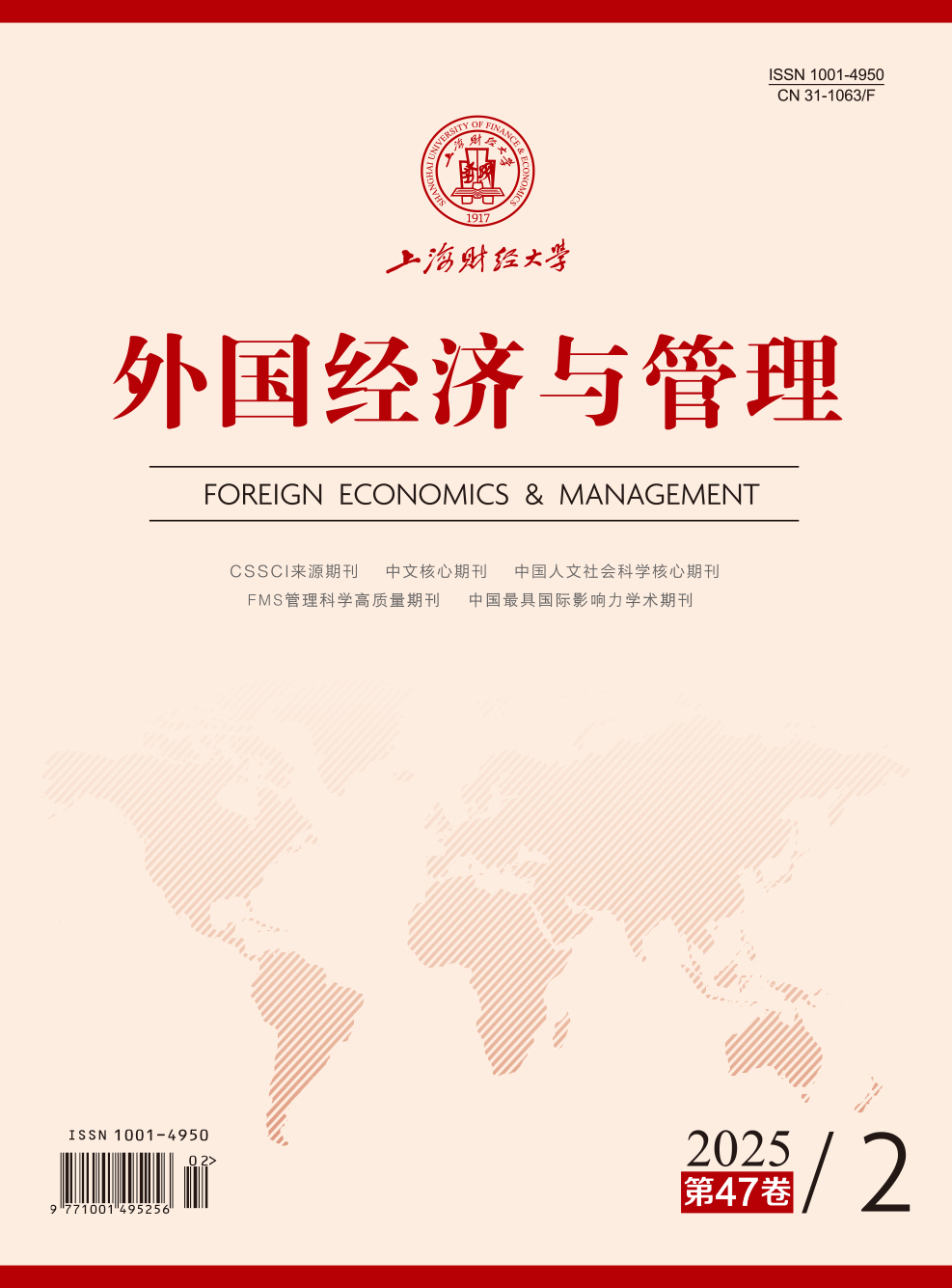论资排辈文化蕴含的身份隔离和等级差序等隐性规范可能阻碍信息流动、弱化公司内部监督,进而滋生公司违规行为。基于此,本文突破传统的制度与契约理论范式,重点从非正式制度视角考察论资排辈文化对公司违规行为的影响效应及机理。运用2008—2021年沪深A股上市公司数据,实证研究发现,论资排辈文化显著增加了公司违规概率及违规次数。进一步检验揭示,论资排辈文化主要通过削弱公司内部监督和降低信息质量这两条路径提高了公司违规行为。此外,在国有产权、高权力集中度、绩效压力较大以及男性董事长的企业中,论资排辈文化对公司违规行为的负面效果更明显。本研究从隐性规范视角深化了对公司违规行为赖以依存的文化土壤及其力量逻辑的理解,丰富了公司违规主题研究文献。它也对破除组织内身份壁垒、激发员工个体活力,以更好发挥员工群体的主体性治理价值具有一定实践启示。
论资排辈、隐性规范与公司违规行为:基于非正式制度视角的研究
摘要
参考文献
1 陈仕华, 张瑞彬. 董事会非正式层级对董事异议的影响[J]. 管理世界, 2020, 36(10): 95-110. DOI:10.3969/j.issn.1002-5502.2020.10.008
3 杜兴强, 殷敬伟, 赖少娟. 论资排辈、CEO任期与独立董事的异议行为[J]. 中国工业经济, 2017, (12): 151-169.
4 古志辉. 全球化情境中的儒家伦理与代理成本[J]. 管理世界, 2015, 31(3): 113-123.
5 江新峰, 张敦力, 李欢. “忙碌”独董与企业违规[J]. 会计研究, 2020, (9): 85-104. DOI:10.3969/j.issn.1003-2886.2020.09.007
7 李文佳, 朱玉杰. 儒家文化对公司违规行为的影响研究[J]. 经济管理, 2021, 43(9): 137-153. DOI:10.3969/j.issn.1671-0975.2021.09.035
8 李晓慧, 王彩, 孙龙渊. 中注协约谈监管对抑制公司违规的“补台”与“合奏”效应研究[J]. 会计研究, 2022, (3): 159-173. DOI:10.3969/j.issn.1003-2886.2022.03.012
9 刘建秋, 李四海, 王飞雪, 等. “论资排辈”式高管薪酬与企业生产效率研究[J]. 南开管理评论, 2021, 24(1): 118-127. DOI:10.3969/j.issn.1008-3448.2021.01.012
10 钱爱民, 朱大鹏. 财务报告文本相似度与违规处罚——基于文本分析的经验证据[J]. 会计研究, 2020, (9): 44-58. DOI:10.3969/j.issn.1003-2886.2020.09.004
11 沈伊默, 诸彦含, 周婉茹, 等. 团队差序氛围如何影响团队成员的工作表现?——一个有调节的中介作用模型的构建与检验[J]. 管理世界, 2019, 35(12): 104-115,136,215.
12 王艳, 李善民. 社会信任是否会提升企业并购绩效?[J]. 管理世界, 2017, 33(12): 125-140. DOI:10.3969/j.issn.1002-5502.2017.12.010
14 徐细雄, 李万利, 陈西婵. 儒家文化与股价崩盘风险[J]. 会计研究, 2020, (4): 143-150. DOI:10.3969/j.issn.1003-2886.2020.04.012
16 占美松, 黄琳琳, 康均, 等. 国有企业的论资排辈对成本粘性的影响研究[J]. 管理学报, 2022, 19(4): 595-603. DOI:10.3969/j.issn.1672-884x.2022.04.013
19 Ang J S, Cheng Y M, Wu C P. Trust, investment, and business contracting[J]. Journal of Financial and Quantitative Analysis, 2015, 50(3): 569-595. DOI:10.1017/S002210901500006X
20 Cai X N, Jiang F X, Kang J K, et al. Remote board meetings and board monitoring effectiveness: Evidence from China[J]. The Review of Financial Studies, 2023, 36(11): 4318-4372. DOI:10.1093/rfs/hhad026
21 Coles J L, Li Z F. An empirical assessment of empirical corporate finance[J]. Journal of Financial and Quantitative Analysis, 2023, 58(4): 1391-1430. DOI:10.1017/S0022109022000448
22 Doyle J T, Ge W L, McVay S. Accruals quality and internal control over financial reporting[J]. The Accounting Review, 2007, 82(5): 1141-1170. DOI:10.2308/accr.2007.82.5.1141
23 Guo Y D, Luo X R, Li D Y. Hierarchical inconsistency: A monitoring mechanism to reduce securities fraud in emerging markets[J]. Organization Science, 2022, 33(6): 2187-2208. DOI:10.1287/orsc.2021.1541
24 Ham C, Lang M, Seybert N, et al. CFO narcissism and financial reporting quality[J]. Journal of Accounting Research, 2017, 55(5): 1089-1135. DOI:10.1111/1475-679X.12176
25 He J Y, Huang Z. Board informal hierarchy and firm financial performance: Exploring a tacit structure guiding boardroom interactions[J]. Academy of Management Journal, 2011, 54(6): 1119-1139. DOI:10.5465/amj.2009.0824
26 Mihet R. Effects of culture on firm risk-taking: A cross-country and cross-industry analysis[J]. Journal of Cultural Economics, 2013, 37(1): 109-151. DOI:10.1007/s10824-012-9186-2
27 Morrison E W, Wheeler-Smith S L, Kamdar D. Speaking up in groups: A cross-level study of group voice climate and voice[J]. Journal of Applied Psychology, 2011, 96(1): 183-191. DOI:10.1037/a0020744
28 Ndofor H A, Wesley C, Priem R L. Providing CEOs with opportunities to cheat: The effects of complexity-based information asymmetries on financial reporting fraud[J]. Journal of Management, 2015, 41(6): 1774-1797. DOI:10.1177/0149206312471395
29 Rijsenbilt A, Commandeur H. Narcissus enters the courtroom: CEO narcissism and fraud[J]. Journal of Business Ethics, 2013, 117(2): 413-429. DOI:10.1007/s10551-012-1528-7
30 Uzun H, Szewczyk S H, Varma R. Board composition and corporate fraud[J]. Financial Analysts Journal, 2004, 60(3): 33-43. DOI:10.2469/faj.v60.n3.2619
31 Veltrop D B, Molleman E, Hooghiemstra R B H, et al. Who's the boss at the top? A micro‐level analysis of director expertise, status and conformity within boards[J]. Journal of Management Studies, 2017, 54(7): 1079-1110. DOI:10.1111/joms.12276
32 Westphal J D, Stern I. The other pathway to the boardroom: Interpersonal influence behavior as a substitute for elite credentials and majority status in obtaining board appointments[J]. Administrative Science Quarterly, 2006, 51(2): 169-204. DOI:10.2189/asqu.51.2.169
33 Xu X X, Lin C L, Duan L L. Does hierarchical ranking matter to corporate innovation efficiency? An empirical study based on a corporate culture of seniority[J]. Chinese Management Studies, 2023, 17(3): 594-619. DOI:10.1108/CMS-06-2021-0258
34 Zhu J G, Ye K T, Tucker J W, et al. Board hierarchy, independent directors, and firm value: Evidence from China[J]. Journal of Corporate Finance, 2016, 41: 262-279. DOI:10.1016/j.jcorpfin.2016.09.009
引用本文
林翠梁, 徐细雄, 吴林春. 论资排辈、隐性规范与公司违规行为:基于非正式制度视角的研究[J]. 外国经济与管理, 2025, 47(2): 53-68.
导出参考文献,格式为:
下一篇:秘密消费:研究进展与未来展望





 3601
3601  7600
7600

